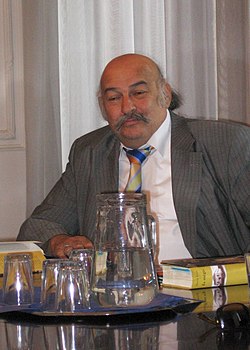Horn Government | |
|---|---|
| 64th Cabinet of Hungary | |
 | |
| Date formed | 15 July 1994 |
| Date dissolved | 8 July 1998 |
| People and organisations | |
| Head of state | Árpád Göncz (Ind.) |
| Head of government | Gyula Horn |
| Member party | |
| Status in legislature | Supermajority grand coalition |
| Opposition party | |
| Opposition leader | Viktor Orbán (Fidesz) Lajos Für, Sándor Lezsák (MDF) József Torgyán (FKgP) |
| History | |
| Election | 1994 election |
| Outgoing election | 1998 election |
| Legislature term | 1994–1998 |
| Predecessor | Boross Government |
| Successor | First Orbán Government |
The Horn government was the third government in Hungary after the change of regime, which was formed from a coalition of two parties, the MSZP and the SZDSZ. The coalition had a two-thirds majority in Parliament, but voluntarily agreed to amend the two-thirds laws only if there was a consensus with the opposition. The government took the oath of office on July 15, 1994. After their defeat of the 1998 elections, Prime Minister Gyula Horn's term expired on 6 July 1998, and the other cabinet members' 8 July 1998.








